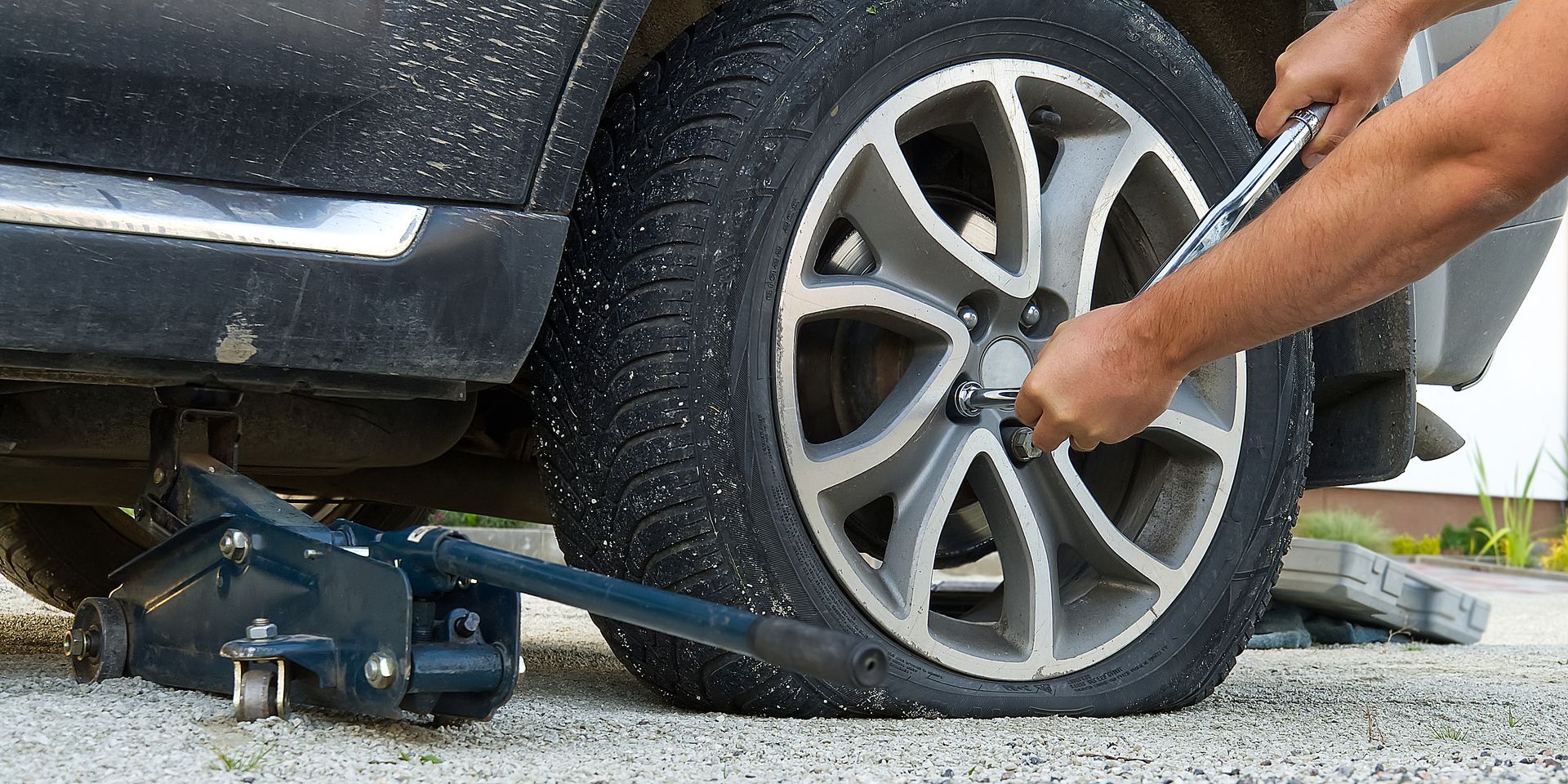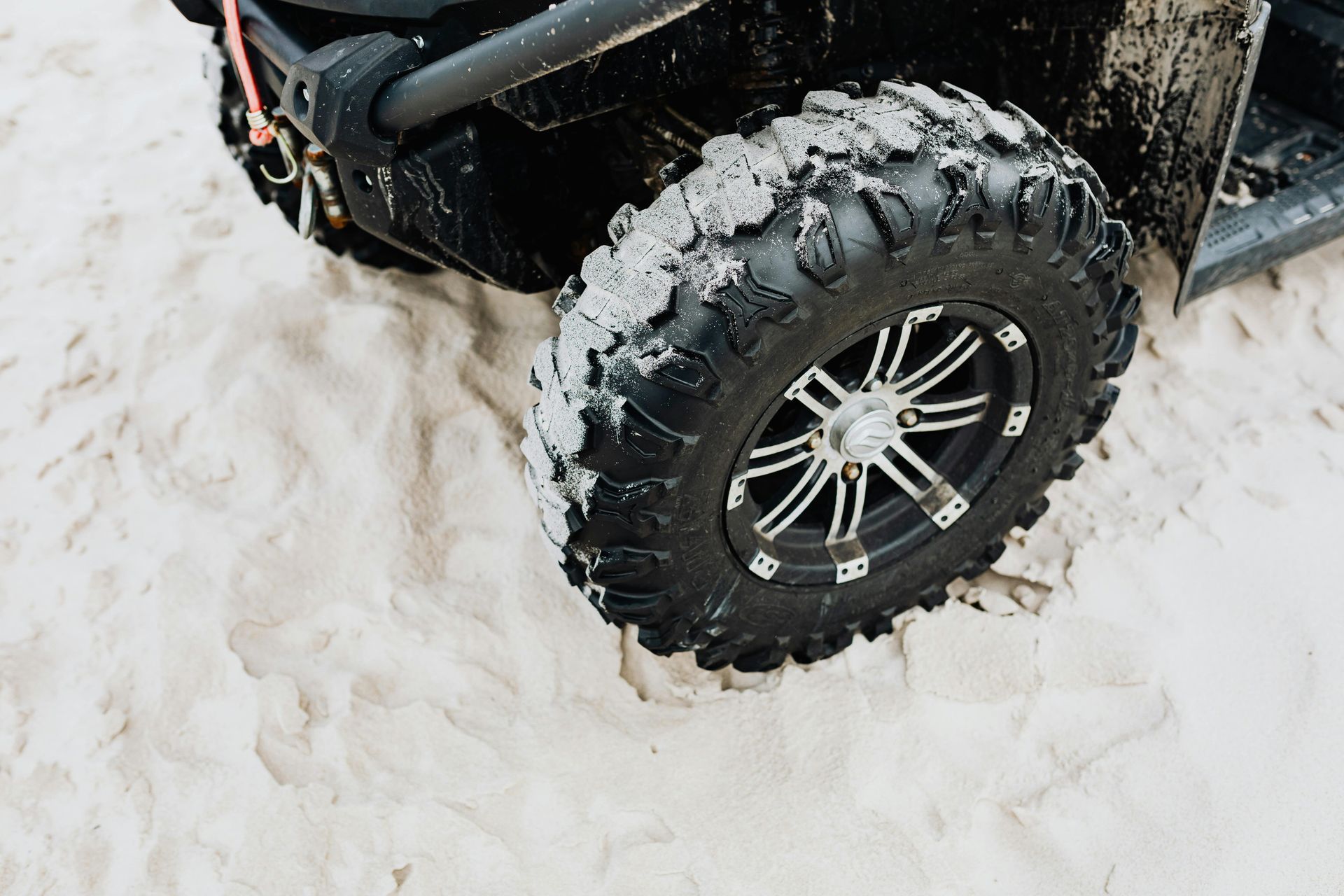Tire warranties are protection plans offered by tire manufacturers or retailers that provide coverage for a specified period of time or until a certain mileage or tread depth is reached. Unlike most consumer products that offer short-term warranties, tire warranties typically cover tires for multiple years. They can include coverage for tread life, workmanship, materials, uniformity, and even road hazards. Understanding the length and terms of a typical tire warranty is important for consumers to make informed decisions about their tire purchases.
Key Takeaways:
- Tire warranties offer long-term coverage for multiple years or until a certain mileage or tread depth is reached.
- They can include coverage for tread life, workmanship, materials, uniformity, and road hazards.
- Understanding the length and terms of a warranty is crucial for informed tire purchasing.
- Comparing warranties from different manufacturers and retailers can help you find the best coverage.
- Following recommended maintenance guidelines is important to keep your warranty valid.
Understanding Tire Warranty Basics
A tire warranty is a crucial component of any tire purchase. It serves as a contract between the tire manufacturer or retailer and the consumer, outlining the terms and conditions of coverage. This section will dive into the key elements that constitute a tire warranty, the various types of warranties available, and the importance of comparing manufacturer and retailer warranty offers.
What Constitutes a Tire Warranty
A tire warranty typically encompasses important information about what is covered, the duration of coverage, and any limitations or exclusions. It ensures that consumers have a clear understanding of what they are entitled to if any issues arise with their tires. By comprehending the terms and conditions outlined in the warranty, consumers can make informed decisions and effectively utilize their warranty benefits.
The Various Types of Tire Warranties Explained
Tire warranties come in different forms to address specific concerns and offer tailored coverage options. These include:
- Mileage or Tread Life Warranties: these warranties guarantee a specific mileage or tread life, providing consumers with a sense of the tire's expected lifespan.
- Workmanship and Materials Warranties: these warranties cover any defects in workmanship or materials used in the manufacturing process.
- Uniformity Warranties: these warranties pertain to tire uniformity, ensuring a smooth and even ride.
- Satisfaction Guarantees: some manufacturers or retailers offer satisfaction guarantees, allowing consumers to return or exchange tires if they are not satisfied with their performance.
- Manufacturer Road Hazard Warranties: these warranties cover tire damage caused by road hazards, such as potholes or debris.
- Tire Protection Plans: additional tire protection plans may be available for purchase, extending warranty coverage beyond the standard terms.
Understanding the different types of tire warranties available is essential in order to select the one that best fits your needs and provides comprehensive coverage.
Comparing Manufacturer and Retailer Warranty Offers
When considering tire warranties, it's important to compare offers from both manufacturers and retailers. While manufacturers' warranties offer coverage directly from the tire maker, retailer warranties are provided by the store selling the tires. Both types of warranties have their own advantages and limitations.
Manufacturer warranties generally offer broader coverage, including workmanship, materials, and sometimes road hazard protection. On the other hand, retailer warranties may come with added perks such as free tire rotations or replacement discounts. It is crucial to carefully evaluate the terms and conditions of each warranty, considering factors like coverage duration, covered items, and any additional benefits.
By comparing and contrasting different warranty offers, consumers can make an informed decision on which warranty suits their specific needs, providing them with peace of mind when it comes to tire performance and potential issues that may arise.
How long are typical tire warranties?
The length of a typical tire warranty can vary depending on the manufacturer and the specific terms of the warranty. Tire warranties are usually offered for multiple years or until a certain mileage or tread depth is reached. On average, tire warranties have a duration of 3-5 years or a coverage period of 50,000-80,000 miles. However, it is important to note that these figures are just averages and can vary across different tire brands and models.
It is crucial to check the terms of the warranty for the specific tire brand and model you are considering purchasing to understand the exact length of coverage provided. Some warranties may offer longer coverage periods or additional benefits such as free tire replacements or pro-rated refunds. By familiarizing yourself with the warranty details, you can make an informed decision and choose the tire that best suits your needs and budget.
Assessing Tire Warranty Lengths Across Brands
When it comes to assessing tire warranty lengths across different brands, it's important to consider industry leaders like Bridgestone and Firestone. These brands are known for offering industry-leading warranties that provide extensive coverage for their tires.
Bridgestone and Firestone's Industry-Leading Warranties
Both Bridgestone and Firestone are renowned for their commitment to providing customers with reliable and comprehensive tire warranties. Their warranties are designed to give customers peace of mind and assurance that their tires are protected.
The Bridgestone tire warranty offers a range of coverage options, including mileage warranties, materials and workmanship warranties, and even road hazard warranties. These warranties provide consumers with confidence in the durability and performance of Bridgestone tires.
Similarly, Firestone's tire warranty offers comprehensive coverage, including mileage and tread life warranties, materials and workmanship warranties, and road hazard protection. With Firestone's warranty, customers can trust that their tires are backed by a brand that prioritizes quality and customer satisfaction.
Average Duration for Mileage and Tread Life Warranties
When comparing tire warranty lengths, an important factor to consider is the average duration of mileage and tread life warranties offered by different brands. While specific durations may vary, it is typical for mileage warranties to range from 50,000 to 80,000 miles. Tread life warranties often align with the expected lifespan of the tire, providing coverage until a certain level of tread wear is reached.
By comparing the average duration of these warranties across brands, consumers can gain a better understanding of what is considered typical in the industry. This information helps them make informed decisions when selecting tires that align with their driving needs and expectations.
What Affects Your Tire Warranty Coverage
When it comes to tire warranties, there are several factors that can impact your coverage. It's crucial to understand these factors to ensure you receive the full benefits of your warranty. This section will explore the eligibility criteria for claiming your warranty, best practices to ensure the validity of your warranty, and common reasons why tire warranties are voided.
Eligibility Criteria for Claiming Your Warranty
In order to claim your tire warranty, you need to meet certain eligibility criteria. These criteria may vary depending on the manufacturer and retailer, but some common requirements include:
- Maintaining proof of purchase
- Following recommended maintenance guidelines
- Keeping your tires properly inflated
- Regularly inspecting your tires for damage or wear
- Completing tire repairs according to industry guidelines
By fulfilling these criteria, you can ensure that you meet the necessary requirements to successfully claim your tire warranty.
Practices to Ensure Continued Warranty Validity
To ensure the validity of your tire warranty throughout its duration, it's important to follow best practices in tire maintenance and care. Some practices that can help maintain the validity of your warranty include:
- Regularly rotating your tires
- Checking and maintaining proper tire pressure
- Avoiding overloading your vehicle
- Avoiding driving on damaged or rough roads
- Adhering to the manufacturer's recommended tire size and type
Following these practices will not only help keep your tires in optimal condition but also ensure that your warranty remains valid and provides the necessary coverage.
Common Reasons Tire Warranties are Voided
While tire warranties are designed to provide coverage for unexpected issues, there are certain actions or situations that can void your warranty. Some common reasons for voided warranties include:
- Misuse or improper maintenance of tires
- Modifying or altering the tires
- Using tires in off-road or racing situations not recommended by the manufacturer
- Failure to complete recommended tire services or inspections
- Using mismatched or improper tires on your vehicle
It's important to be aware of these factors to avoid any potential voiding of your tire warranty. By taking proper care of your tires and adhering to the manufacturer's guidelines, you can protect and maintain the validity of your warranty.
Conclusion
Tire warranties are an essential aspect of purchasing new tires, providing consumers with the necessary protection and peace of mind. By understanding the fundamentals of tire warranties, including the available types, typical length, and factors influencing coverage, consumers can make informed decisions and effectively utilize their warranty benefits. It is crucial to compare warranty offers from various manufacturers and retailers to ensure optimal coverage tailored to individual needs.
Following the recommended maintenance guidelines and industry best practices is key to maintaining the validity of a tire warranty. Regularly inspecting tires for damage or wear, maintaining proper inflation, and adhering to industry guidelines for repairs are all important factors. Failure to meet these criteria, along with other common reasons such as misuse or improper maintenance, can result in voided warranties.
In summary, tire warranties provide valuable support and protection for consumers in unexpected tire-related situations. By familiarizing themselves with the basics, comparing offers, and adhering to recommended practices, consumers can make the most of their tire warranties and feel confident in their purchase decisions. If you need help choosing tires with the best warranties in the Phoenix, AZ metro area contact LugWrench Heroes for help.
FAQ
How long are typical tire warranties?
The length of a typical tire warranty can vary depending on the manufacturer and the specific terms of the warranty. Tire warranties are typically offered for multiple years or until a certain mileage or tread depth is reached. Some warranties may have a duration of 3-5 years, while others may have a coverage period of 50,000-80,000 miles. It's important to check the terms of the warranty for the specific tire brand and model you are considering purchasing.
What constitutes a tire warranty?
A tire warranty is a contract between the tire manufacturer or retailer and the consumer, outlining the terms and conditions of coverage. It typically includes information about what is covered, the duration of coverage, and any limitations or exclusions. Tire warranties can include coverage for tread life, workmanship, materials, uniformity, and even road hazards. There are different types of tire warranties , including mileage or tread life warranties, workmanship and materials warranties, uniformity warranties, satisfaction guarantees, manufacturer road hazard warranties, and tire protection plans.
What are the various types of tire warranties?
Tire warranties can include mileage or tread life warranties, workmanship and materials warranties, uniformity warranties, satisfaction guarantees, manufacturer road hazard warranties, and tire protection plans. These warranties provide different types of coverage for consumers, such as compensation for premature wear, defects in materials or workmanship, tire uniformity issues, and protection against road hazards. Understanding the different types of warranties can help consumers choose the best coverage for their specific needs.
How can I compare manufacturer and retailer warranty offers?
When comparing tire warranty offers from different manufacturers and retailers, it's important to consider the specifics of what is covered, the duration of coverage, and any limitations or exclusions. Industry leaders like Bridgestone and Firestone are known for offering industry-leading warranties that provide extensive coverage for their tires. Additionally, comparing the average duration of mileage and tread life warranties offered by different brands can help you understand what is considered typical in the industry. This information can assist you in making an informed decision about which warranty offers the best coverage for your needs.
What affects my tire warranty coverage?
There are several factors that can affect your tire warranty coverage. It's important to understand the eligibility criteria for claiming your warranty, which may include maintaining proof of purchase, following recommended maintenance guidelines, keeping your tires properly inflated, regularly inspecting your tires for damage or wear, and completing tire repairs according to industry guidelines. Failure to meet these criteria, as well as other common reasons such as misuse or improper maintenance, can result in voided warranties. Following best practices and taking proper care of your tires can help ensure that your warranty remains valid.
What is the conclusion about tire warranties?
Tire warranties play an important role in protecting consumers and providing peace of mind when purchasing new tires. Understanding the basics of tire warranties, including the different types of warranties available, the typical warranty length, and factors that can affect warranty coverage, can help consumers make informed decisions and effectively utilize their warranty benefits. By comparing warranty offers from different manufacturers and retailers, consumers can ensure they are getting the best coverage for their specific needs. It is crucial to follow the recommended maintenance guidelines and practices to maintain the validity of the warranty. Overall, tire warranties provide valuable support and protection for consumers in case of unexpected tire issues.













